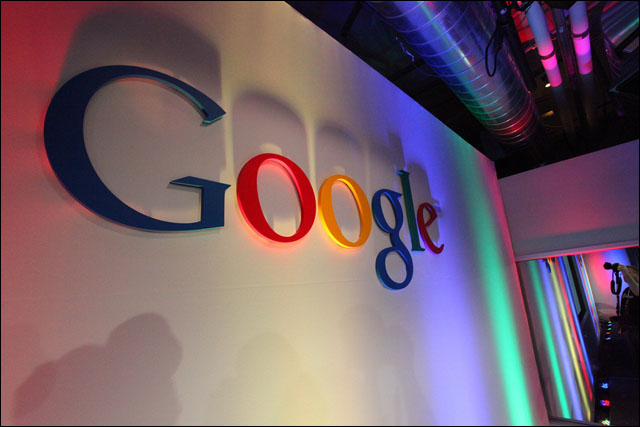
This article is by Dr George Yijun Tian, a Senior Lecturer at the University of Technology Sydney Law School. It originally appeared on The Conversation.
analysis Amidst a number of submissions to federal communications minister Malcolm Turnbull’s media regulation reforms last week pushing for deregulation was one from search giant Google – calling for legislative expansion.
Google has correctly identified two important areas for reform. The company has requested the extension of copyright safe harbours to online intermediaries – like search engines and forums – in order to provide more legal certainty for the operation of online intermediaries. It is also urging the introduction of “fair use” copyright provisions, as recently recommended by the Australian Law Reform Commission (ALRC), to replace the current arrangement – complex and technology-specific copyright exceptions.
But a brief review of the history of Australian safe harbour legislation and recent ISP-related case laws in the US shows the best way to provide legal certainty for online intermediaries would be to introduce “fair use” exceptions alone. More safe harbour rules aren’t needed at this stage.
Safe harbour protections began, for internet service providers, in 1996. That was the year the World Intellectual Property Organization adopted a treaty that explicitly required member countries to provide immunity (“safe harbour”) for ISPs so they couldn’t be held liable for their subscribers’ online infringement acts.
But there’s potential for online service providers, like Google and Facebook, to also be held liable for copyright infringement conduct of their subscribers. This could be as simple as the unauthorised upload of a copyrighted work to Facebook.
Australia introduced its own ISP safe harbour legislation in 2000, however later signed a free trade agreement with the United States in 2004. The agreement required Australia to “provide rules for the liability of ISPs for copyright infringement, reflecting the balance struck in the U.S. Millennium Copyright Act (DMCA) between legitimate ISP activity and the infringement of copyrights”.
Many commentators believe a US-style safe harbour scheme “would obviously be more favourable to copyright holders and place more obligations on ISPs”. It means providers will only have immunity if they comply with the requests of the copyright holders, who could also subpoena ISPs for information about users who are suspected of using the services to store unauthorised material.
It is these protections, incomplete as they are, that Google wants extended to cover itself and other online intermediaries.
Recent court cases in the US have painted a fairly sunny picture for online intermediaries, so long as they “avoid actively inducing infringement, their roles as intermediaries should not subject them to liability for copyright infringement”. In case after case, US courts have extended safe harbour immunities to online service providers.
Since Australia imported the USA safe harbour law model, arguably, the Australian safe harbour should be broad enough for protecting online intermediaries and for the development of new business/service models, such as cloud computing services. So it would seem there is no immediate need to strengthen the protection for intermediaries by extending Australia’s existing safe harbour provision.
But Google is right: the current Copyright Act contains “multiple, detailed provisions which are not suitable for a digital age”. Basic internet functions like searches aren’t covered, functions like caching are dealt with in three separate places with three different legal treatments. This creates significant legal uncertainties for online service providers like Google.
The Law Reform Commission has already pointed out ditching out-dated technology-specific exemptions from copyright law and replacing them with a “fair use” provision would mean Australia kept pace with changes in the digital world. And it would mean online businesses in Australia would have the same protections as US firms do.
Fair use is simply the use of copyrighted work for a limited or “transformative” reasons, such as to comment upon, criticise, or parody a copyrighted work. For instance, the US law contains a list of the various purposes for which the reproduction of a particular work may be considered “fair”, like criticism, news reporting, teaching, scholarship, and research. This means the works can be used for these reasons without permission from the copyright owner.
Fair use could arguably serve as a powerful defence for online service providers and their users. If, for instance, copyright holders can’t pursue the users of services like Facebook, then it’s unlikely they would be able to initiate litigation against online service providers themselves. It seems, in the US, that current safe harbour rules work well with fair use exceptions to provide legal certainty for online intermediaries and their users.
The fair use regime in the US has already demonstrated sound flexibility in keeping pace with changing technologies (like the internet and cloud services) and encouraging innovation. Repealing existing technology-specific exceptions and replacing them with broader rules, not extending patchy safe harbour rules, would serve as the best resolution in the long run.
George Tian does not work for, consult to, own shares in or receive funding from any company or organisation that would benefit from this article, and has no relevant affiliations. This article was originally published on The Conversation. Read the original article. Image credit: Robert Scoble, Creative Commons
![]()

